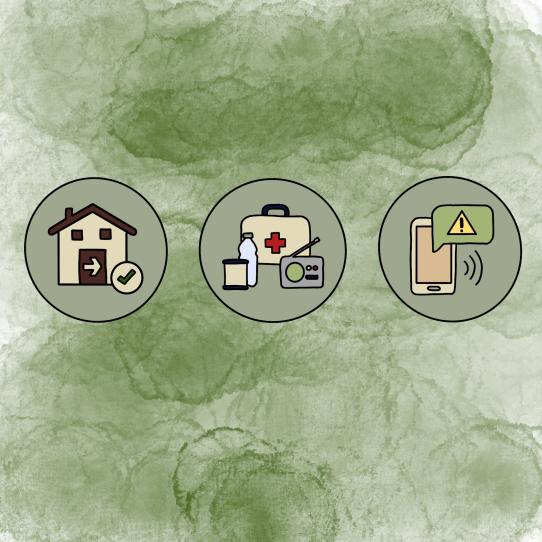“They’re saying that the west is prioritizing politics over the humanitarian situation, but that’s not true. To give priority to one over the other both situations - the humanitarian and the political - have to exist. In the west, only the political situation exists, not the humanitarian. The politicization of the situation - that’s normal; but the humanitarian situation don’t exist, either today or in the past,” Syrian president Bashar Al-Assad said to interviewers. Destroyed buildings can be seen in the background of the clip. - Sky News UK
When two consecutive earthquakes struck Turkey and northern Syria, twenty thousand people were buried alive while hundreds of thousands of others were displaced from their homes. Many Syrians still seek asylum from neighboring countries, primarily Turkey, which worsened the already tense debate among EU members on refugee issues.
Just before the earthquake hit, leaders of the EU gathered to implement stricter border control that would limit irregular migration. They discussed surveillance, asylum registration, and return measures. However, the advent of the earthquake caused an influx of refugees from Syria and Turkey to EU countries. Mixed with other conflicts such as the Ukrainian war displacing 8 million people, the EU’s migration policies are clearly unenthusiastic and cautious.
But the refugee problem is not a new one.
In 2011, what began as teens protesting against the brutal reign of the Al-Assad regime in Syria became a full-scale civil war as civilians mobilized in retaliation. The rebels hoped to establish a new rule away from the oppressive Assad family rule. In response, the Syrian army mobilized and struck cities with the most rebel activity. In the early stages, the army laid siege to Dereaa, the first of many sieges that would kill thousands of civilians.
The rebel army lacked professional organization, and the Syrian National Coalition eventually emerged as the representative of Syrians. Yet the coalition’s inefficiency, mixed with the government intentionally freeing extremist religious prisoners, gave rise to Al-Qaeda and the Islamic state. These religious extremist groups proved efficient in combat against the government regime, although their motivation was to capitalize on the chaos of the civil war, establish a footing in Syria, and create a new nation under the Sunni doctrine. The Assad regime and its biggest opposition, the Islamic State, both target civilians in the war, killing thousands.
The diplomacy of the war was complicated, as many attempted political resolutions of the conflict failed. This created a stalemate as many countries tried to provide military and humanitarian assistance instead. The US, UK, and France have aided the Syrian resistance force in training and medical provision, while Russia and Iran provided the Syrian government with soldiers. But in 2020, Russia closed three of the four routes used for the delivery of humanitarian aid.
Early 2020 saw the official ceasefire, though the destruction of the war forced over 13.5 million Syrians from their homes and 6.8 million refugees hosted in over 100 countries. The war also crippled the economy.
The earthquake of February 2023 showed us the fragility of a nation marred by civil conflict, as the quakes destroyed more buildings in Syria and worsened the pre-existing economic, social, and political issues in Syria. In many ways, the Earthquake in Syria is an extension of the crisis of the civil war. President Assad’s comments are extreme in dismissing completely the presence of humanitarian aid from EU countries, and it also reveals hidden intentions and alliances.
Sources:
Cullinan, Kerry. “As Earthquakes Hit Turkey and Syria, Who Extends Refugee Health Plan – Undertakes Traditional Medicine Policy.” Health Policy Watch, 6 Feb. 2023, https://healthpolicy-watch.news/as-earthquakes-hit-turkey-and-syria-who-extends-refugee-health-plan-undertakes-traditional-medicine-policy/.
Laub, Zachary. “Syria’s War and the Descent into Horror.” Council on Foreign Relations, Council on Foreign Relations, 14 Feb. 2023, https://www.cfr.org/article/syrias-civil-war.
Mathieson, Rosalind. “Quake Crisis to Sharpen Europe Migration Debate.” Bloomberg.com, Bloomberg, 9 Feb. 2023, https://www.bloomberg.com/news/newsletters/2023-02-09/quake-crisis-to-sharpen-europe-migration-debate-balance-of-power.
Mullen, Jethro, and Brian Walker. “Syria’s Bashar Al-Assad: West Is to Blame for Refugee Crisis.” CNN, Cable News Network, 16 Sept. 2015, https://www.cnn.com/2015/09/16/middleeast/syria-al-assad-interview/index.html.
“Refugee Statistics.” USA for UNHCR, https://www.unrefugees.org/refugee-facts/statistics/.
Stamatoukou, Eleni. “Eu Agrees Stricter Migration Measures after Quakes in Turkey, Syria.” Balkan Insight, 10 Feb. 2023, https://balkaninsight.com/2023/02/10/eu-agrees-stricter-migration-measures-after-quakes-in-turkey-syria/.
Tokyay, Menekse. “Post-Quake Environment Could Fuel Anti-Immigrant Sentiment in Turkiye .” Arab News, Arabnews, 12 Feb. 2023, https://www.arabnews.com/node/2249781/middle-east.
Written by Brian Yu
Edited by Sophia Huang

 Safety Tips for Different Types of Natural Disasters
Safety Tips for Different Types of Natural Disasters